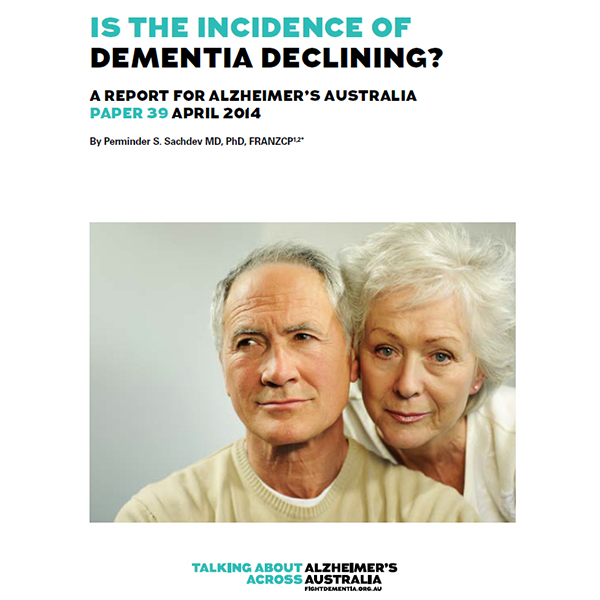A new report suggests action on preventative health could lower the dementia risk for future generations. Released by Alzheimer’s Australia and the Centre for Healthy Brain Ageing, the report, Is the Incidence of Dementia Declining?, said evidence from recent studies in Europe show age-specific rates of dementia may be modifiable, with environmental and lifestyle factors such as diet and exercise making a significant contribution to reducing the risk.
The expected prevalence of dementia in people aged 65 and older was estimated to be 8.1 per cent according to a UK study in 2011. “However, the actual prevalence was 6.5 per cent, a decrease of about 20 per cent from what was expected,” said Alzheimer’s Australia chief medical advisor, Professor Perminder Sachdev.
The report cautions that the total numbers of people with dementia will continue to rise, even with changes in age-specific prevalence, because of the increasing numbers of older people in Australia. But the report also highlights the importance of changing the way Australians think about dementia.
Because changes in the brain that lead to dementia can take up to 20 years before symptoms first appear, people of all ages can make simple lifestyle adjustments that may reduce their risk of dementia. “This includes increasing physical activity and controlling blood pressure and cholesterol,” said Alzheimer’s Australia national president, Ita Buttrose. She added that it cannot be assumed that other factors such as the rising rates of obesity and diabetes will not have an adverse impact on the number of new cases of dementia.
Australia is also setting a new agenda to establish dementia-friendly communities. This follows the recent visit of British dementia expert Rachael Litherland who said activities such as memory cafes, choirs, walking groups, volunteering and employment can create opportunities from which these communities can be built.
Encouraging businesses to train their staff to better communicate with and understand people living with dementia too can have a positive impact on the everyday lives of those living with dementia, she said.
“Already Transport NSW, 800 ANZ branches and progressive councils are using the Alzheimer’s Australia Is it Dementia? training resource to help educate frontline staff in dementia awareness.”
For more information visit: www.fightdementia.org.au

